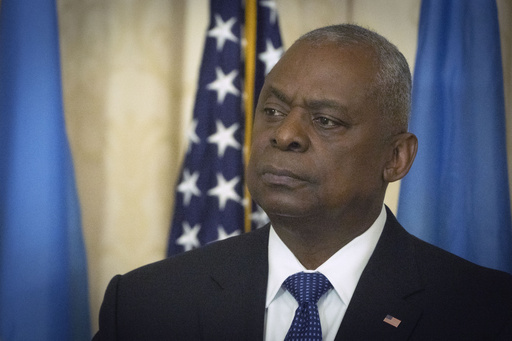The Defense Department has decided to contest a recent ruling made by a military judge regarding the validity of plea agreements involving Khalid Sheikh Mohammed, who is accused of being the mastermind behind the September 11, 2001 terrorist attacks, along with two co-defendants. A defense official disclosed this information on Saturday, highlighting that the ruling from earlier in the week effectively countered an order from Defense Secretary Lloyd Austin that sought to dismiss the plea agreements, affirming instead their legitimacy.
The military judge, Air Force Colonel Matthew McCall, has moved to grant the three defendants the opportunity to enter guilty pleas, setting the stage for a future hearing to be arranged by the military commission. Following this decision, the Defense Department intends to ask for a delay regarding any proceedings associated with these pleas, as revealed by the anonymous official. Rear Admiral Aaron Rugh, serving as head prosecutor, communicated the recent developments to families affected by the 9/11 attacks in a letter sent out on Friday.
Allowing these pleas to take place in the military courtroom at Guantanamo Bay, Cuba, could help the defendants avoid the possibility of facing the death penalty. Guilty pleas from Mohammed, Walid bin Attash, and Mustafa al-Hawsawi would represent a significant move towards resolving the long-standing prosecution, which has faced numerous complications since the attacks that resulted in almost 3,000 fatalities.
These plea agreements were originally negotiated between government prosecutors and defense attorneys, receiving approval from the military commission’s top official at Guantanamo. However, the public revelation of the deals drew heavy criticism from Republican lawmakers and others this past summer. In response, Secretary of Defense Austin quickly issued a directive to nullify the plea deals, asserting that such significant decisions in high-stakes death penalty cases related to one of the most severe crimes committed in the United States should ultimately fall under his jurisdiction.
The military judge’s ruling indicated that Austin did not possess the legal authority to overturn the plea agreements. This dispute represents a particularly contentious chapter in a prosecution fraught with complications and delays, including years of pretrial hearings focused on whether the defendants’ statements could be deemed admissible, especially in light of allegations of torture during their time in CIA custody.
Although some families of 9/11 victims insist that prosecutions must continue until they reach trial and potentially result in death sentences, legal analysts express uncertainty about the feasibility of such outcomes. Should the cases navigate through the various legal obstacles surrounding trial, verdicts, and sentences, it is highly likely that the U.S. Court of Appeals for the District of Columbia Circuit would have to address several issues related to any ensuing death penalty appeals.
Key matters that could arise during such appeals include the CIA’s destruction of torture interrogation videos, the implications of Austin’s attempts to reverse the plea agreements as potentially unlawful interference, and whether the defendants’ previous torture impacted the validity of their later interrogations conducted by FBI “clean teams” that employed no violence.



